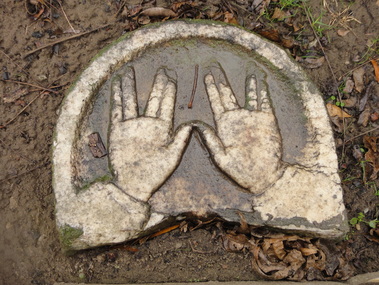 Click image for photo credit.
Click image for photo credit. I recently had one of those moments with my ten-year-old. It came as a revelation to me about both my child and about myself.
I was looking over a weekly school report from my daughter's teacher. I saw lots of A's and the word "Excellent" on the report. I told my daughter, "You did really well this week. You must have worked hard." I expected her to respond by saying something like, "Thank you," or, "Yeah, it was a good week for me." That is not what I heard, though.
I heard nothing. My daughter just looked at me without any expression, positive or negative. If anything, she looked a bit scared. It was as if my compliment was a threat to her – a verbal blow that she would have to absorb and hope that the pain would pass quickly.
I felt a bit hurt by her indifference to my words. "Who responds that way to a compliment?" I asked myself. "Who feels pained by praise?" I wondered.
And then I answered myself: "Oh, yeah. That's me. I do that. She gets it from me."
So now, I feel doubly troubled. My daughter doesn't know how to take a compliment and, I realize, neither do I. I am always looking at my shoes when people say nice things about me. It's not that I don't appreciate the kindness behind a compliment – it's just that I don't really believe it. I have a hard time accepting praise because I would rather listen to my own critical judgments about myself. And now, my daughter does the same thing. Oy.
I want to do better than this – both for my child and for myself. I want to be able to hear words of praise from others, and I want to be able to give my child praise that she will hear. Where am I going to find a way to do that?
Well, there are worse places to look for instruction than in this week's Torah portion (Naso). In the reading, we hear God telling Moses to teach Aaron and his sons the words of "The Priestly Blessing":
May Adonai bless you and keep you.
May the face of Adonai shine upon you and be gracious to you.
May the face of Adonai lift up to you and give you peace.
– Numbers 6:24-26
It is a beautiful blessing and it appears prominently in both Jewish and Christian liturgy. However – most interestingly – Jewish tradition focuses more on the proper way to give the blessing than it does on the actual content of the blessing.
In the verse that introduces the Priestly Blessing, God instructs Moses: "Speak to Aaron and to his sons, saying, 'Thus you shall bless the children of Israel. Say to them:…'" (Numbers 6:23).
The classical rabbis are always sensitive to extraneous words in the text and they notice a whopper in this verse. They wonder, why do the instructions to Aaron and his sons include the phrase, "Say to them," after it already states, "Thus you shall bless"? Is it really necessary to tell the priests to both "bless" and "say"? Doesn't the first necessarily require the second?
Rashi, the great medieval commentator on the Hebrew Bible and the Talmud, says that the word "say" has special significance. First of all, he notices that the word is spelled oddly in the Hebrew. The word, Amor, is spelled with an extra letter vav that Rashi interprets as an intensification that adds special meaning to the way the priests should speak the blessing to the Israelites.
Rashi says that the priests should know from this that they must not give the blessing hastily. Rather, they must do it in a way that conveys a real sense of intention and purpose. He says that the blessing must be given "with a whole heart" so that the people will truly hear.
I imagine that the ancient priests struggled to understand how to speak words to a large crowd of people "with a whole heart." The words must be spoken with an understanding of the people. There must be a deep compassion for the struggles that the people have been through and an awareness of all their self-doubts and feelings of inadequacy. The blessing must be spoken in such a way that the people hear it, not as a ritual formula, but as an urgent message that contains an undeniable truth: "You are blessed, and you are worthy of being blessed, in all that you have and in all that you do. Know this about yourself and celebrate it."
I only have one small child to whom I have to speak that truth, not a whole nation. How I wish that I could make words convey such depth and urgency when I say to my daughter, "You did a good job this week. You worked hard." Oh, how I wish that I could hear it myself when someone I love tells me, "You're a good dad," or "You helped me today."
To say that, and to hear it, requires commitment and focussed attention. When we speak and when we hear important words, we have to make sure that we truly are being heard and that we truly hear. We do that almost automatically when we chastise someone ("Are you listening to me?!") or when we hear chastisement. It may be even more important to speak and to listen with a whole heart when we offer praises and blessing.
Other Posts on This Topic:
Naso: Two Ways of Seeking God's Face
Funerals


 RSS Feed
RSS Feed
